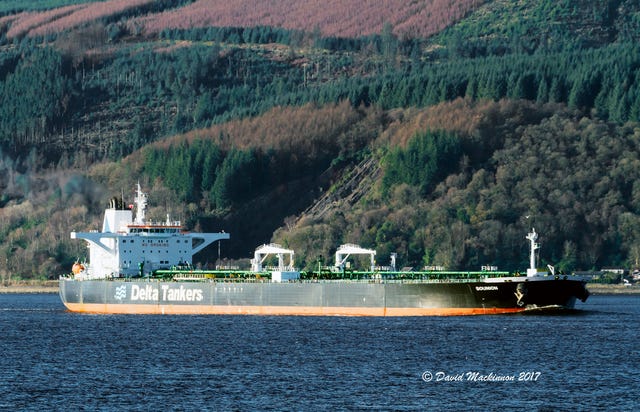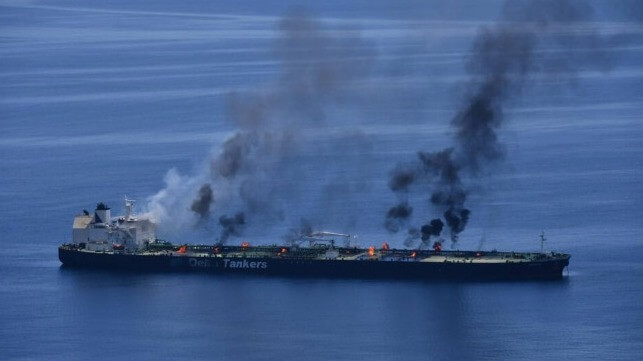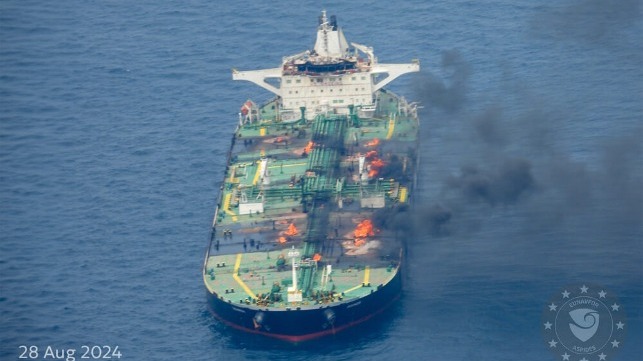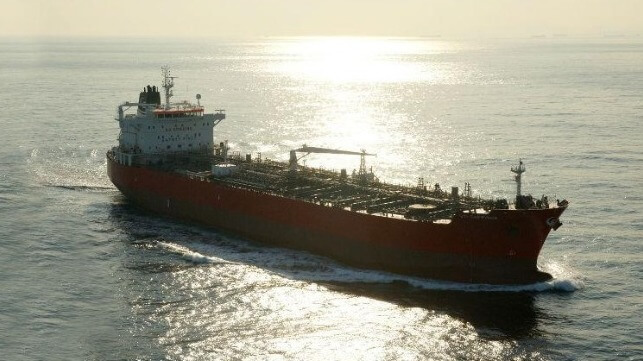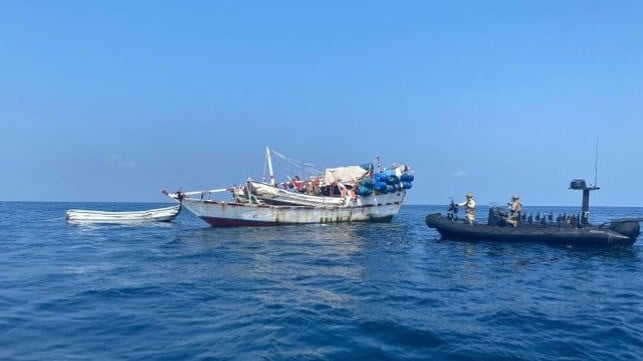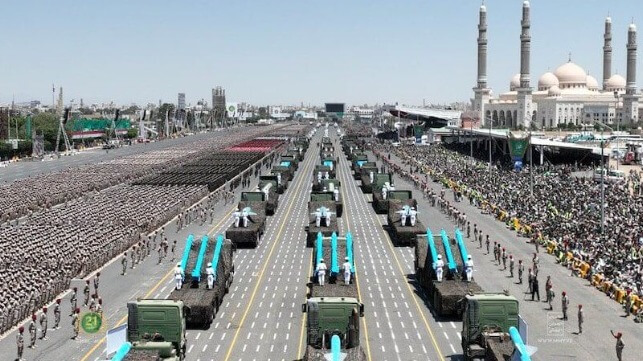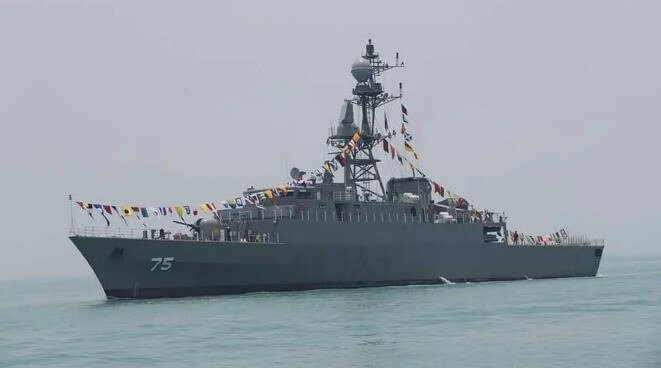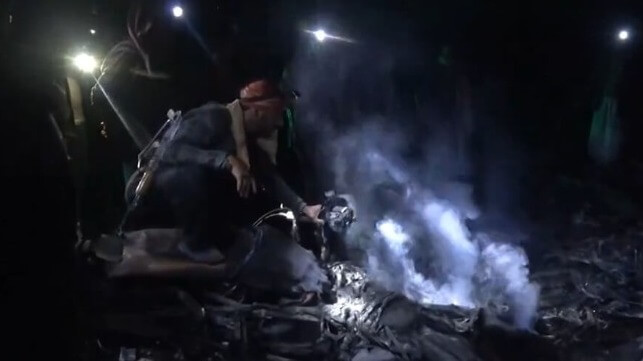[By Captain Harifidy A. Alex Ralaiarivony]
The WIO region serves as an essential gateway linking Asia, the Pacific, and the Middle East, occupying a central position in the world’s economic and strategic balance. This criticality is underscored by the significant maritime traffic transiting through or operating within the region, including major routes and chokepoints like the Red Sea, Bab-El-Mandeb Strait, and the Strait of Hormuz. This latter alone sees the passage of 20.9 million barrels of crude oil and 130 ships daily, highlighting the region’s importance for global energy exports.
The year 2024 demonstrated a notable intensification in the complexity and diversity of threats to maritime security in this vital area. While traditional concerns such as illicit trafficking (drugs, arms, human beings) and illegal fishing persist, new challenges, particularly the Houthi attacks in the Red Sea and a re-emergence of maritime piracy, demanded significant attention. The RMIFC, through its fundamental missions of collecting and disseminating critical maritime information, actively participated in regional operations to respond to these challenges.
The overall number of maritime security events recorded within the RMIFC’s area of interest has shown a steady increase over the past eight years, from 640 events in 2017 to 1145 events in 2024.
Key elements contributing to the RMIFC’s ability to address these events include the expansion of its information exchange processes and efforts to build and maintain information sharing networks. The regional maritime security architecture, comprising regional (RMIFC and Regional Centre for Operational Co-ordination [RCOC]) and national centers and liaison officers, interacts with international communities and benefits from technical support and cooperation.
Building on the foundation of the Program for the Promotion of Maritime Security (MASE) (2010-2023), which enhanced maritime security and created an enabling environment for economic development, the current EU-funded Safe Seas Africa Program (SSA) (signed July 2024) aims to consolidate and expand these achievements by strengthening the regional architecture, capacities of information centers, operational coordination, and national centers. The RMIFC’s main objectives include processing maritime information to create Maritime Situational Awareness and a Comprehensive Regional Maritime Picture, supporting regional maritime operations, serving as an information sharing platform, promoting cooperation, and contributing to reports and studies.
Salient Threats in 2024
While all maritime security threats in the Eastern and Southern Africa and the Indian Ocean (ESA-IO) region warrant attention, some demonstrated particular salience in 2024.
Maritime Extension of Conflicts (Red Sea Crisis)
This category saw the most significant increase in 2024, accounting for 128 out of 175 total acts of violence at sea, compared to only 69 incidents of maritime violence in 2023.4 The crisis stemmed from Houthi attacks starting in November 2023. These attacks initially targeted Israeli-linked vessels but expanded to include vessels of US and UK interest following airstrikes against the Houthis, and eventually, other vessels without clear affiliation.
The main modes of action identified include pretending to be Yemeni authorities, using unmanned aerial vehicles (UAVs or drones), manned skiffs with weapons, and anti-ship missiles (terminal guided and ballistic). While the effectiveness of these methods was estimated to be less than 10%, they caused serious consequences, including fatalities and severe damage to vessels. This maritime extension of the conflict is undeniably the most salient new kinetic threat due to its direct impact on international shipping and the sheer volume of incidents recorded in this category.
Piracy
Potentially linked to the unrest caused by the Houthi attacks and the subsequent reorientation of naval resources, piracy showed a concerning resurgence in 2024. While the phenomenon remains below the endemic levels of 2008-2013, 18 incidents classified as piracy were recorded in 2024, a sharp increase compared to previous years, and a notable rise since late 2023.
This resurgence, particularly in the Somali Basin, reintroduces a threat that had been strongly contained for years, opening a window of opportunity for pirate networks. The pirates’ strategy involves hijacking fishing dhows to use as mother ships to attack larger vessels up to 600 nautical miles or more off the coast. The report notes that most pirated vessels did not have Private Armed Security Teams (PAST).
Maritime Incidents
While not inherently criminal, the significant increase in maritime incidents in 2024 highlights a critical safety and security challenge. A total of 512 maritime incident events were recorded, a 20% increase compared to 426 in 2023. This surge was particularly notable in the sub-categories related to pollution and accidents. Increased traffic, potentially due to the re-routing around the Cape of Good Hope, and the use of vessels in poor condition navigating bad weather, are identified as main factors contributing to incidents and loss of life.
Suspicious Activity Reporting (SAR) and Medical Evaluation (MEDEVAC) operations also saw a considerable increase (8% and 16% respectively), indicating increased demands on response capabilities. The potential for major oil spills, such as the threat posed by the attack on MV Sounion, remains a high-risk incident within this category.
Illicit Trafficking
Illicit trafficking, particularly of drugs and arms, continues to pose a significant and persistent challenge to regional stability. While the total quantity of drugs seized (42.24 tons) was significantly lower in 2024 compared to the preceding years (over 100 tons in 2021-2023), the number of drug smuggling incidents (127) remains high.
This paradox is partly attributed to the Red Sea crisis diverting naval resources traditionally engaged in counter-narcotics missions. The northern Indian Ocean is the primary area for seizures, linked to proximity to production areas, though transshipments occur along routes towards the East African coast. Six cases of weapon and drone trafficking were documented, including arms destined for Houthi rebels.
Illegal, Unreported and Unregulated (IUU) Fishing
IUU fishing is recognized as a major and ongoing challenge that threatens marine ecosystems, the blue economy, food security, and can contribute to social conflict and fuel criminal networks. The RMIFC recorded 69 incidents related to IUU fishing in 2024.10 While the total number is lower than trafficking incidents, the persistent nature and widespread environmental and economic impacts make it highly salient, particularly for coastal African states dependent on marine resources. IUU fishing also may contribute to the resurgence of piracy.
Other Threats (Terrorism, Cybercrime)
Maritime terrorism incidents recorded in 2024 were few (2 events in Mozambique) but involved kidnappings and arrests of suspected terrorists near coastal areas, indicating insurgents maintain freedom of movement by boat in certain regions. Maritime cybercrime saw only one recorded event (hacking of the US Fifth Fleet), but the report highlights significant potential vulnerabilities in ports, vessels, and data systems, with potential for major disruption and financial loss.
Impacts Extending into Africa and Beyond
The impacts of these maritime security threats extend significantly into African coastal states and have broader international consequences. The most direct and widespread economic impact in 2024 stemmed from the Red Sea crisis. The reorientation of shipping flows towards the Cape of Good Hope disrupted usual routes. This has resulted in a very sharp increase in insurance premiums, a lengthening of sea routes by almost 10 days (reducing vessel and container availability), and a collapse in revenues for Egypt from the Suez Canal transit. The maritime sector has been forced to reorganize permanently, with new alliances and logistics hubs emerging, suggesting a return to previous traffic levels is not expected soon.
Piracy resurgence also increases costs for security, insurance, and potential ransom payments. IUU fishing losses, estimated at millions of dollars per year, harm local economies and prevent job creation in the blue economy. Illicit trafficking, particularly of drugs and arms, fuels terrorist and criminal networks and undermines regional stability. Arms trafficking linked to conflict zones further destabilizes the region, while ransom money from piracy can influence local politics and increase criminal activities. Weak governance and lawlessness in turn can enable criminal groups, including pirates, to gain control over institutions. Injury, loss of life, and environmental degradation result from all of these threats.
Response Strategies: Direct, Multilateral, and Mitigation
Effectively addressing these diverse threats requires a comprehensive approach involving actions at national, regional, and international levels. National governments and their maritime agencies play a crucial role in responding directly to threats within their jurisdiction or involving their flagged vessels through law enforcement and patrols and strengthening laws and regulations. National maritime agencies conduct SAR and MEDEVAC operations, directly saving lives at sea. Anti-pollution teams respond to spills. Campaigns to inform local communities about risks and engage them in conservation are direct local actions. Implementing robust cybersecurity systems, training staff, and developing incident response plans are direct actions for shipping companies and ports. Merchant vessels can adhere to Best Management Practices (BMP) (version 5 recommended for piracy) and employ Private Armed Security Teams (PAST).
Going beyond national responses, given the transnational nature of most maritime threats, multilateral cooperation is critical to successful mitigation. The Regional Maritime Security Architecture in the WIO region is built on this principle. The Regional Maritime Information Fusion Centre (RMIFC) is central to the regional mechanism, enabling information exchange and coordination. Its ability to fuse data from various sources is key to building maritime situational awareness for both national and international agencies. The European Union’s SafeSeas Africa (SSA) program specifically supports these centers.15 Programs like MASE and SSA aim to strengthen the technical, material, and human capacities of regional and national centers. Workshops and Tabletop exercises enhance collaboration and information sharing frameworks.
RCOC and international partners collaborate on joint operations targeting specific threats. Multinational forces like the Combined Maritime Force (CMF) and the Combined Task Force (CTF) 150 that operates underneath it, conduct counter-narcotics operations. EUNAVFOR operations (ATALANTA, ASPIDES) respond to piracy and the Red Sea crisis.
Private industry plays a role as well. Shipping interests have re-routed traffic around the Cape of Good Hope to mitigate the risk in the Red Sea, though this is not without its own set of challenges. The permanent reorganization of the maritime industry with new alliances and logistics hubs is a form of long-term adaptation. Increased insurance premiums are a market-based mitigation of financial risk. Adherence to safety regulations and BMP5 mitigates the risk of incidents and piracy.
Putting all these together, strengthening early warning systems and climate change adaptation mitigate the impact of natural events, which can exacerbate other vulnerabilities. Improving information sharing and coordination of operations mitigates the potential for major maritime disasters, even if incidents occur. While complex, addressing underlying factors such as poverty, lawlessness, and IUU fishing (by strengthening governance, promoting sustainable practices, developing the blue economy) can help mitigate the conditions that fuel piracy and trafficking. Efforts to reduce the demand for illegal wildlife products also contribute to mitigation. Developing and strengthening oil spill contingency plans (regional and national) and having trained response teams in place are key to mitigating the environmental damage from pollution incidents. Waste reduction initiatives and clean-up campaigns mitigate the impact of marine litter on ecosystems like coral reefs.
Conclusion
The maritime security landscape in the WIO region is dynamic and increasingly challenging. The RMIFC Activity Report 2024 clearly illustrates that while persistent threats like IUU fishing and illicit trafficking remain significant, the resurgence of piracy and, particularly, the maritime extension of regional conflicts in the Red Sea introduced critical new dimensions in 2024. These threats have profound and far-reaching impacts, affecting economic stability, human safety, environmental health, and regional governance across Africa and beyond. The Red Sea crisis dominated in terms of direct kinetic attacks and immediate global economic disruption in 2024, while IUU fishing and illicit trafficking represent high-volume, persistent challenges that fuel criminal networks and undermine long-term sustainability. The increase in maritime incidents highlights the growing pressures on safety and response capabilities in busy waterways, exacerbated by re-routing.
Responding effectively requires a multi-pronged approach. Direct actions by national forces and ship operators are essential for immediate response and deterrence. However, the transnational nature of these threats mandates robust multilateral cooperation through established Regional Maritime Security Architecture mechanisms like the RMIFC and RCOC, supported by international partners and joint operations. Furthermore, strategies focused on mitigation are necessary to address the broader consequences of these threats, from economic disruption and pollution to the underlying conditions that enable criminal activity.
Future policy actions should prioritize sustaining and enhancing the regional maritime security architecture, fostering information sharing and coordination, building national capacities, and ensuring resources are available to address both persistent challenges and emerging crises. Continued vigilance and collaborative action, informed by timely and comprehensive data from centers like the RMIFC, are paramount to safeguarding the vital maritime domain of the WIO region for the benefit of all stakeholders.
Captain Harifidy A. Alex Ralaiarivony is the director of the Regional Maritime Information Fusion Center in Antanarivo, Madagascar. He is the former Head of International Relations in the Madagascar Ministry of Defence. Captain Ralaiarivony holds a Master 2 (M2) in Strategy, Defense, Security and Conflict and Disaster Management from the Center for Research and Political and Strategic Studies – University of Yaoundé II (Centre de Recherche et d’Etudes Politiques et Stratégiques -Université de Yaoundé II); earned a Secondary Military Teaching Certificate from the International Higher War School of Yaoundé (Ecole Superieure Internationale de Guerre de Yaoundé), and a Naval Higher Studies Diploma from the French Naval Academy. He is currently pursuing a degree in international law, international economics, and politics at the Center for Diplomatic and Strategic Studies in Madagascar.
This article appears courtesy of CIMSEC and may be found in its original form here, including extensive footnotes.
The opinions expressed herein are the author's and not necessarily those of The Maritime Executive.




